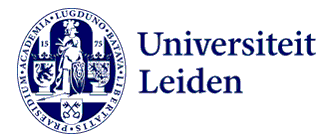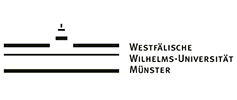Indonesia Constitutional Court Constitutional Interpretation Methodology (2003-2008)
Abstract
Keywords
Full Text:
PDFReferences
Asshidiqqie, Jimly, 2007, Pokok-Pokok Hukum Tata Negara Indonesia Pasca Reformasi, Bhuana Ilmu Populer.
---------------, 2003, Struktur Ketatanegaraan Indonesia Setelah Perubahan Keempat UUD Tahun 1945 (Paper presented at Jakarta,)
---------------, 2009, The Constitutional Law of Indonesia: A Comprehensive Overview, Sweet & Maxwell Asia.
Ball, Terrence, 1992, Constitutional Interpretation and Conceptual Change ‘ in Gregory Leyh (ed), Legal Hermenutics: History, Theory, and Practice, University of California Press.
Barber, Sotirios A. and James E. Fleming, 2007, Constitutional Interpretation : The Basic Question, Oxford Universtiy Press, Inc.
Butt, Simon, ‘The Constitutional Court’s Decision in the Dispute between the Supreme Court and the Judicial Commission : Banishing Judicial Accountability?’ (2009) 09(31) Legal Studies Research Paper.
Butt, Simon, Judicial Review in Indonesia: Between Civil Law and Accountability? A Study of Constitutonal Court Decision (PhD Thesis, University of Melbourne, 2006)
Dahl, Robert A, 2001, How Democratic is the American Constitution?
Dworkin, Ronald, 1977, Taking Rights Seriously, Harvard Universty Press. Ginsburg, Tom, ‘Economic Analysis and the Design of Constitutional Courts’
(1) Theoretical Inquiries in Law 1
Goldsworthy, Jeffrey, 2006, Interpreting Constitutions: A Comparative Study, Oxford University Press.
Harding, Andrew; Peter Leyland, 2009, The Constitutional Court of Thailand and Indonesia : Two Case Studies From South East Asia in Andrew; Peter Leyland Harding (ed), Constitutonal Court: A Comparative Study, JCLStudies in Comparative Law, Windy, Simmonds & Hill Publishing.
Harman, Benny, Perkembangan Pemikiran Mengenai Perlunya Pengujian UU Terhadap UUD Dalam Sejarah Ketatanegaraan Indonesia (1945-2004) (The Development of Legal Thought on the Judicial Review Act of Parliament Against the Constituton in the Indonesia Constitutional History) (PhD Thesis, University of Indonesia, 2006)
Harun, Refly, ‘Hakim Konstitusi Kelas Dua (Second Class Justices)’, Koran Tempo (Jakarta), 22 August 2003 2006
Hendrianto, From Humble Beginnings to a Functioning Court: The Indonesian Constitutional Cout, 2003-2008 (PhD Thesis, University of Washington 2008)
Heryanto, Ariel, 2006, State Terorism and Political Identity in Indonesia: Fatally Belonging, Routledge
Indrayana, Denny, 2008, Indonesian Constitutional Reform 1999 - 2002 : An Evaluation of Constitution-Making In Transition, Kompas Book Publishing.
Jackson, Vicki C and Jamal Greene, 2011, Constitutional Interpretation in Comparative Perspective: Comparing Judges or Court?’ in Thomas and Rosalind Dixon Ginsburg (ed), Comparative Constitutional Law, Research Handbook in Comparative Law, Edward Elgar Publishing, Inc.
Kommers, Donald P, 2006, Germany: Balancing Rights and Duties ‘ in Gregory Leyh (ed), Legal Hermenutics: History, Theory, and Practice, University of California Press.
Limbach, Jutta, The Concept of the Supremeacy of the Constitution, (2000) 64 (21 January) Modern Law Review
MD, Mahfud, The Role of the Constitutional Court in the Development of Democracy in Indonesia, (Paper presented at the World Conference on Constitutional Justice Cape Town 2009)
Perry, Michael J, 1988, Morality, Politics, and Law : a Bicentennial Essay, Oxford Universtiy Press.
Perry, Michael J, 2006, Why Constitutional Theory Matters to Constitutional Practice (And Vice Versa) in Gregory Leyh (ed), Legal Hermenutics: History, Theory, and Practice, University of California Press.
Posner, Richard A, ‘What Has the Pragmatism to Offer Law’ (1990) (63) Southern Law California Law Review
Siahaan, Maruarar, Pelaksanaan Putusan Mahkamah Konstitusi (The Implementation of Constitutional Court Decision) (PhD Thesis, Dissertation Thesis, University of Diponegoro, 2010)
Stockmann, Petra, 2007, The New Indonesian Constitutional Court: A Study into its Beginnings and First Years of Work, Hans Seidel Foundation.
Tushnet, Mark V, ‘Does Constitutional Theory Matter?: A Comment’ (1986 - 1987) 65(4) Texas Law Review 777
Zoelva, Hamdan, ‘Hubungan Mahkamah Konstitusi dengan Lembaga Negara Lainnya (Constitutional Court and relate State Institution)’ (2006) (January - March ) Jentera Jurnal Hukum.
DOI: https://doi.org/10.31078/consrev111
Article Metrics
Abstract view : 1135 timesPDF view : 268 times
Refbacks
- There are currently no refbacks.
Copyright (c) 2016 Constitutional Review

























































